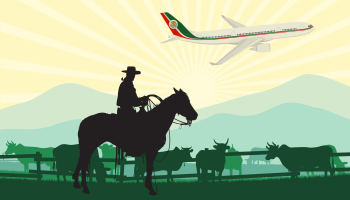“We tried to make sure there was always close supervision of these operations so that we were accomplishing our objectives, and agents weren’t laundering money for the sake of laundering money,” former senior DEA official Michael S. Vigil told New York Times. Another former DEA official who chose to remain anonymous said “My rule was that if we are going to launder money, we better show results. Otherwise, the DEA could wind up being the largest money launderer in the business, and that money results in violence and deaths.”
Some critics draw parallels between the laundering operation and a gun-smuggling operation, “Fast and Furious,” in which agents of the Bureau of Alcohol, Tobacco, Firearms and Explosives allowed suspected low-level arms dealers to buy and transport guns to Mexico in hopes that the weapons could be traced to higher-level criminals working for Mexican cartels. However, the Bureau lost track of hundreds of weapons, some of which later turned up both in Mexico and the US. Two of the guns were found on the US side of the border, and were linked to the death of two American Border Patrol officers.
Former DEA officials defend the laundering operation, saying that weapons pose a much greater threat to public safety than money does, and that it is easier to trace money to cartel leadership.
“These are not the people whose faces are known on the street. They are super-insulated. And the only way to get to them is to follow their money,” former DEA agent Robert Mazur told the New York Times. Mazur is the author of “The Infiltrator: My Secret Life Inside the Dirty Banks Behind Pablo Escobar's Medellín Cartel,” an account of the years he spent working as a secret agent inside the Colombian Medellín cartel.
Another former DEA official said “Building up the evidence to connect the cash to drugs, and connect the first cash pickup to a cartel’s command and control, is a very time consuming process. These people aren’t running a drugstore in downtown L.A. that we can go and lock the doors and place a seizure sticker on the window. These are sophisticated, international operations that practice very tight security. And as far as the Mexican cartels go, they operate in a corrupt country, from cities that the cops can’t even go into.”
Some 50 similar money laundering operations are taking place around the world. These US operations, termed “Attorney General Exempt Operations,” were banned in Mexico in 1998 after American customs agents conducted an undercover operation across the border without notifying the Mexican authorities. However, in recent years Mexican President Felipe Calderón has invited the US to join Mexico’s war against cartels. The US operation against the Mexican drug cartels has grown as these cartels expanded their markets into South America, Europe, Africa, and the Middle East.
The death toll in recent years has been the highest since Mexico’s 1910 revolution. Since Calderón took office in 2006, about 40,000 people have been killed as a result of Mexico’s drug wars. Speaking at a conference at the Cato Institute in Washington last month, former Mexican foreign minister Jorge G. Castañeda said, “We need to concentrate all our efforts on combating violence and crime that affects people, instead of concentrating on the drug issue. It makes absolutely no sense for us to put up 50,000 body bags to stop drugs from entering the United States.”
According to the Mexican government, military strikes across the country have fragmented many of the powerful cartels and have resulted in the arrest of around dozen high and mid level cartel members. At the same time, the number of complaints against police officers and soldier for violations of human rights has increased significantly.
Despite the government’s claims of success, there has been no significant decrease in drug trade. Some, like Sergio Ferragut, a professor at the Autonomous Technological Institute of Mexico, say that authorities still only punish low-level traffickers.
“Mexico still thinks the best way to seize dirty money is to arrest a trafficker, then turn him upside down to see how much change falls out of his pockets,” he told the NYT. Ferragut is the author of a book on money laundering, which he says is “still a sensitive subject for Mexican authorities.”





